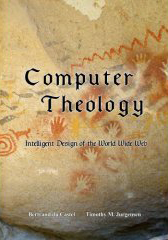PRESS
COMPUTER THEOLOGY |
||||
|
physiological characteristics of the device through which it
facilitates its own processes as well as extensions of those processes aimed at
supporting the full range of human needs. We will assume as a baseline for
these enhanced physiological characteristics the secure cores that we find in
current personal electronic devices. We will further assume as the impetus for
development of new facilities the evolutionary forces that we discussed earlier
which in turn evoked new appetites within the higher levels of the needs
hierarchy. Satisfying these higher level appetites requires capability
enhancements at the lower levels. The most prevalent current instances of
secure cores for personal electronic devices are smart cards and Trusted
Platform Modules (TPMs). Their physiological facilities are rather limited.
Probably their greatest deficiency is the lack of an internal power source.
They receive power from the interface devices through which they connect to the
outside world. Moreover, the extensions that enhance the mapping of the human
sensori-motor system to their sensori-motor system are extremely limited. Of
particular issue in this regard is the rather primitive input and output
channel through which they communicate with the outside world. Of course, we
must remember that we earlier suggested that the very simple nature of this
channel was one of the characteristics from which trust could derive. In
general, a simple channel is easier to protect than is a complex channel. In
addition, it is easier to determine when we have actually protected a simple
channel versus the situation for a complex channel. Nonetheless, in order to
enhance the stature of personal electronic devices in the future, to actually
build transcendent personal devices and allow them to function fully as
extensions of the human mind into the world encompassed by computer networks,
the mutational changes will have to encompass these base capabilities of the
device such that the enhanced facilities can enable all the support for higher
level needs satisfaction. The energy
to enable the processes of life is the preeminent need of all living things.
Correspondingly, a reliable power source dedicated to the continuous operation
of the transcendent personal device and its contained trusted core agent will
significantly impact its basic physiology, subsequently altering the paradigm
of security for the trusted core agent from “periods of total darkness followed
by an abrupt introduction into the light,” a process similar to ecstasy, to one
of continuous vigilance, perhaps interspersed with periods of meditation on the
state that the token finds itself in. Will ecstasy still be a relevant state
for the invocation of new policy? Yes, but what is desired is the true ecstasy
of the prophet rather than the temporary euphoria of the proselyte; the firm
revelation of the law rather than the more tenuous illumination of
instantaneous, faith based reaction. While this description may well represent
a bit of metaphoric overkill, it is certainly the case that with a continuous
power source, the transcendent personal device is in a much better position to
establish and maintain its own trustworthiness, and to project this
trustworthiness on behalf of its bearer. Access to a power source that is dedicated to the trusted core agent rather than derived from its external world interface point completely changes the perspective of the agent’s security posture. Of course, within the architecture that we have thus far suggested, power for the trusted core agent is likely to derive from the body of the device proper. However, if we consider the two parts of the full transcendent personal device as a symbiotic pair, then the trust basis of the agent is greatly enhanced over that of current secure cores. Much as is found with the human reflex and motor mechanisms, dedicated and secure power will allow the agent to effect security in depth rather than security by rote instinct. The agent will be allowed the luxury of more judicious thought before it is asked to make the ultimate sacrifice when it perceives an irresistible threat. The question becomes then, what is the source of this new facility? The answer comes from among at least three possible directions: enhancements to existing portable power mechanisms (e.g. |
||||
|
||||
© Midori Press, LLC, 2008. All rights reserved for all countries. (Inquiries) The contents of ComputerTheology: Intelligent Design of the World Wide Web are presented for the sole purpose of on-line reading to allow the reader to determine whether to purchase the book. Reproduction and other derivative works are expressly forbidden without the written consent of Midori Press. Legal deposit with the US Library of Congress 1-33735636, 2007.
|
ComputerTheology Intelligent Design of the World Wide Web Bertrand du Castel and Timothy M. Jurgensen Midori Press, Austin Texas 1st Edition 2008 (468 pp) ISBN 0-9801821-1-5 |
Book available at Midori Press (regular) |
